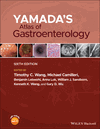Complications of HIV/AIDS and other secondary immunodeficiency states
Summary
This chapter focuses on endoscopic and histological features of gastrointestinal infections associated with acquired immunodeficiency syndrome (AIDS), hepatic complications of AIDS, and intestinal involvement in graft-versus-host disease. AIDS and other cellular and humoral immunodeficiency states are associated with an array of gastrointestinal complications. The complications associated with AIDS are caused predominantly by infection. Parasitic, viral, bacterial, and fungal pathogens cause a spectrum of mucosal disease, depending on the location and severity of infection and the degree of immunosuppression induced by human immunodeficiency virus-1, the causative agent of AIDS. Gastrointestinal complications are associated with allogeneic hematopoietic stem cell and solid organ transplantation. Opportunistic enteric infections, particularly cytomegalovirus, commonly complicate solid organ transplantation.



